However this may be, it is, at least, well to find out in a school what boys are worth instructing in the Greek language. Now, of their worthiness, of their chances of success in the study, Homer seems the best touchstone; and he is certainly the most attractive guide to the study.
At present boys are introduced to the language of the Muses by pedantically written grammars, full of the queerest and most arid metaphysical and philological verbiage. The very English in which these deplorable books are composed may be scientific, may be comprehensible by and useful to philologists, but is utterly heart-breaking to boys.
Philology might be made fascinating; the history of a word, and of the processes by which its different forms, in different senses, were developed, might be made as interesting as any other story of events. But grammar is not taught thus: boys are introduced to a jargon about matters meaningless, and they are naturally as much enchanted as if they were listening to a chimaera bombinans in vacuo. The grammar, to them, is a mere buzz in a chaos of nonsense.
They have to learn the buzz by rote; and a pleasant process that is--a seductive initiation into the mysteries. When they struggle so far as to be allowed to try to read a piece of Greek prose, they are only like the Marchioness in her experience of beer: she once had a sip of it. Ten lines of Xenophon, narrating how he marched so many parasangs and took breakfast, do not amount to more than a very unrefreshing sip of Greek. Nobody even tells the boys who Xenophon was, what he did there, and what it was all about. Nobody gives a brief and interesting sketch of the great march, of its history and objects. The boys straggle along with Xenophon, knowing not whence or whither:
"They stray through a desolate region, And often are faint on the march."One by one they fall out of the ranks; they mutiny against Xenophon;they murmur against that commander; they desert his flag. They determine that anything is better than Greek, that nothing can be worse than Greek, and they move the tender hearts of their parents.
They are put to learn German; which they do not learn, unluckily, but which they find it comparatively easy to shirk. In brief, they leave school without having learned anything whatever.
Up to a certain age my experiences at school were precisely those which I have described. Our grammar was not so philological, abstruse and arid as the instruments of torture employed at present.
But I hated Greek with a deadly and sickening hatred; I hated it like a bully and a thief of time. The verbs in [Greek text]
completed my intellectual discomfiture, and Xenophon routed me with horrible carnage. I could have run away to sea, but for a strong impression that a life on the ocean wave "did not set my genius," as Alan Breck says. Then we began to read Homer; and from the very first words, in which the Muse is asked to sing the wrath of Achilles, Peleus' son, my mind was altered, and I was the devoted friend of Greek. Here was something worth reading about; here one knew where one was; here was the music of words, here were poetry, pleasure, and life. We fortunately had a teacher (Dr. Hodson) who was not wildly enthusiastic about grammar. He would set us long pieces of the Iliad or Odyssey to learn, and, when the day's task was done, would make us read on, adventuring ourselves in "the unseen," and construing as gallantly as we might, without grammar or dictionary. On the following day we surveyed more carefully the ground we had pioneered or skirmished over, and then advanced again.
Thus, to change the metaphor, we took Homer in large draughts, not in sips: in sips no epic can be enjoyed. We now revelled in Homer like Keats in Spenser, like young horses let loose in a pasture.
The result was not the ****** of many accurate scholars, though a few were made; others got nothing better than enjoyment in their work, and the firm belief, opposed to that of most schoolboys, that the ancients did not write nonsense. To love Homer, as Steele said about loving a fair lady of quality, "is a liberal education."Judging from this example, I venture very humbly to think that any one who, even at the age of Cato, wants to learn Greek, should begin where Greek literature, where all profane literature begins--with Homer himself. It was thus, not with grammars in vacuo, that the great scholars of the Renaissance began. It was thus that Ascham and Rabelais began, by jumping into Greek and splashing about till they learned to swim. First, of course, a person must learn the Greek characters. Then his or her tutor may make him read a dozen lines of Homer, marking the cadence, the surge and thunder of the hexameters--a music which, like that of the Sirens, few can hear without being lured to the seas and isles of song. Then the tutor might translate a passage of moving interest, like Priam's appeal to Achilles; first, of course, explaining the situation. Then the teacher might go over some lines, minutely pointing out how the Greek words are etymologically connected with many words in English.













